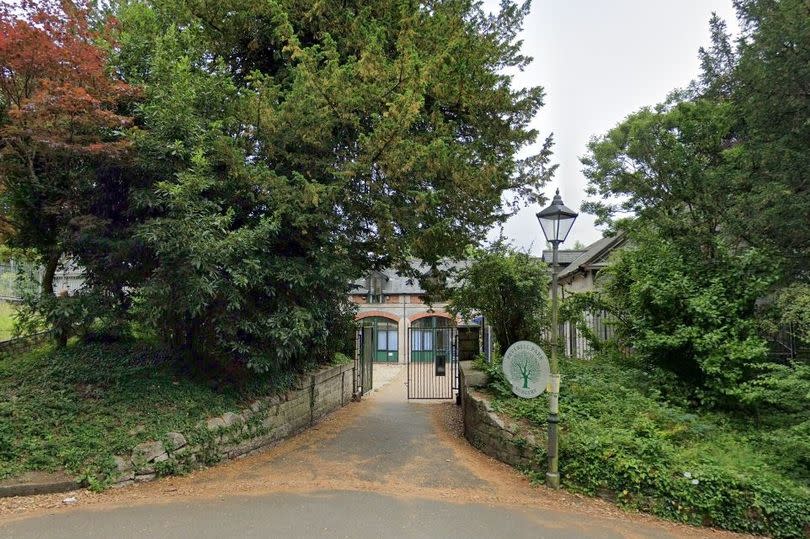Plymouth's GP surgeries ranked by waiting times as Peverell Park shines

Patients of a GPs surgery in Peverell are getting less frustrated than in other parts of the city after figures revealed an NHS postcode lottery when it came to how long people had to wait to see a doctor.
Across the country some patients are five times more likely to have to wait more than three weeks to see a GP by comparison to folks in places like London.
In Plymouth, Peverell Park Surgery in Outland Road has the lowest percentage of three-week waits at just 0.6 percent, with an impressive 60.9 percent of patients getting a same-day appointment.
At the other end of the scale, Wembury Surgery in Hawthorn Drive has the highest percentage of three-week waits with 22.5 percent, with 36.4 percent of patients can get a same-day appointment at Wembury Surgery.
READ NEXT:
The figures also show Budshead Medical Practice in Budshead Road saw 19.8 percent of patients having to wait over 22 days for an appointment, with the next longest being Abby Rise in Tavistock with 15.4 percent and then Elm Surgery in Leypark Walk, Estover with 14.6 percent.
Only six surgeries in and around Plymouth have a "typical wait" of just one day - Honicknowle Green Medical Centre in Guy Miles Way; Church View Surgery in Holland Road, Plymstock; Friar House Surgery in Beaumont Road, St Judes; Crownhill Surgery in Crownhill Road; Stoke Surgery in Belmont Villas and Peverell Park Surgery in Outland Road.
Four have a "typical wait" of between "8 to 14 days" - Wembury Surgery; Budshead Medical Practice; Wycliffe Surgery in Cattedown Road and Stirling Road Medical Centre in Stirling Road.
Across England during March a total of 13.1 million appointments took place at GP practices across England - but just over 2.8 million of those had been booked more than three weeks earlier.
That equates as 9.4 percent of all appointments, an increase from 8.8 percent of appointments in February, but marginally better than 9.5 percent of appointments in January.
In some regions though, patients are five times as likely to have to wait over three weeks to see their GP. More than one out of every six appointments (17.9 percent) in Gloucestershire last month took place more than three weeks after being booked. That’s the highest ratio of any Integrated Care Board in England.
In Norfolk and Waveney the ratio was 15.6 percent, in Dorset it was 15.2 percent, and in Derby and Derbyshire it was 15 percent.
By contrast, just 3.6 percent of appointments at GP practices in North Central London last month took place more than three weeks after being booked. That’s the lowest proportion in the country. In North East London the proportion was just 4.0 percent, in North West London it was 4.5 percent, and in South West London it was 5 percent.
The majority of patients in England who saw their GP in March did so within a week of making the appointment. Some 70 percent of appointments took place within seven days of booking. That’s up from 69.8 percent in February, but is down from 72 percent in January.
Same-day appointments made up 43.9 percent of all appointments at practices in March. That’s up slightly from 43.5 percent in February, but down from 44.7 percent in January
You can see how your GP practice compares by using our interactive tool below.
Dr Amanda Doyle, national director for primary care, NHS England said: "Thanks to GPs and their hardworking teams, millions more appointments are being delivered every month compared to before the pandemic with plans in place to improve access even further.
"Every GP practice is upgrading their telephone systems to make it easier for patients to contact their surgery, while patients can use the NHS app to order repeat prescriptions and view their test results without needing to contact their family doctor.
"We know there is more to do to make it easier for patients to access GP services, which is why, building on the successes so far of the primary care access recovery plan we will continue to modernise general practice, expand pharmacy services, and offer patients more choice in how they access care."
Primary Care Minister Andrea Leadsom said: "[These] figures clearly demonstrate that more people are getting the care they need, when they need it, thanks to the hard work of our GPs and their teams.
"GPs and their staff have already delivered on a number of pledges – including exceeding the target of 50 million additional general practice appointments per year, several months ahead of schedule – and through the measures in the Primary Care Recovery Plan, the NHS and primary care staff are freeing up millions of extra appointments per year and making it easier for patients to access the care they need.
"We remain committed to making our healthcare system faster, simpler and fairer for all patients so that everyone who needs an appointment is able to get one."
Click here to join PlymouthLive on WhatsApp and we'll send breaking news and top stories directly to your phone. We also treat our community members to special offers, promotions, and adverts from us and our partners. If you don’t like our community, you can check out any time you like. If you’re curious, you can read our Privacy Notice.

 Yahoo News
Yahoo News 
